
The Cape Gannet (Morus capensis)
By Nicole Horn, Biodiversity Capabilities
The Cape Gannet is endemic to southern Africa. They are strictly marine birds with massive breeding colonies, although they have a small breeding range. This species, along with seven other seabird species, is endemic to the Benguela upwelling ecosystem off southwest Africa. They have six colonies in southern Africa with three occurring in Namibia and three in South Africa namely Bird island in Lambert’s Bay as well as Malgas in Saldanha Bay in the Western Cape, and Bird Island in Algoa Bay in the Eastern Cape.
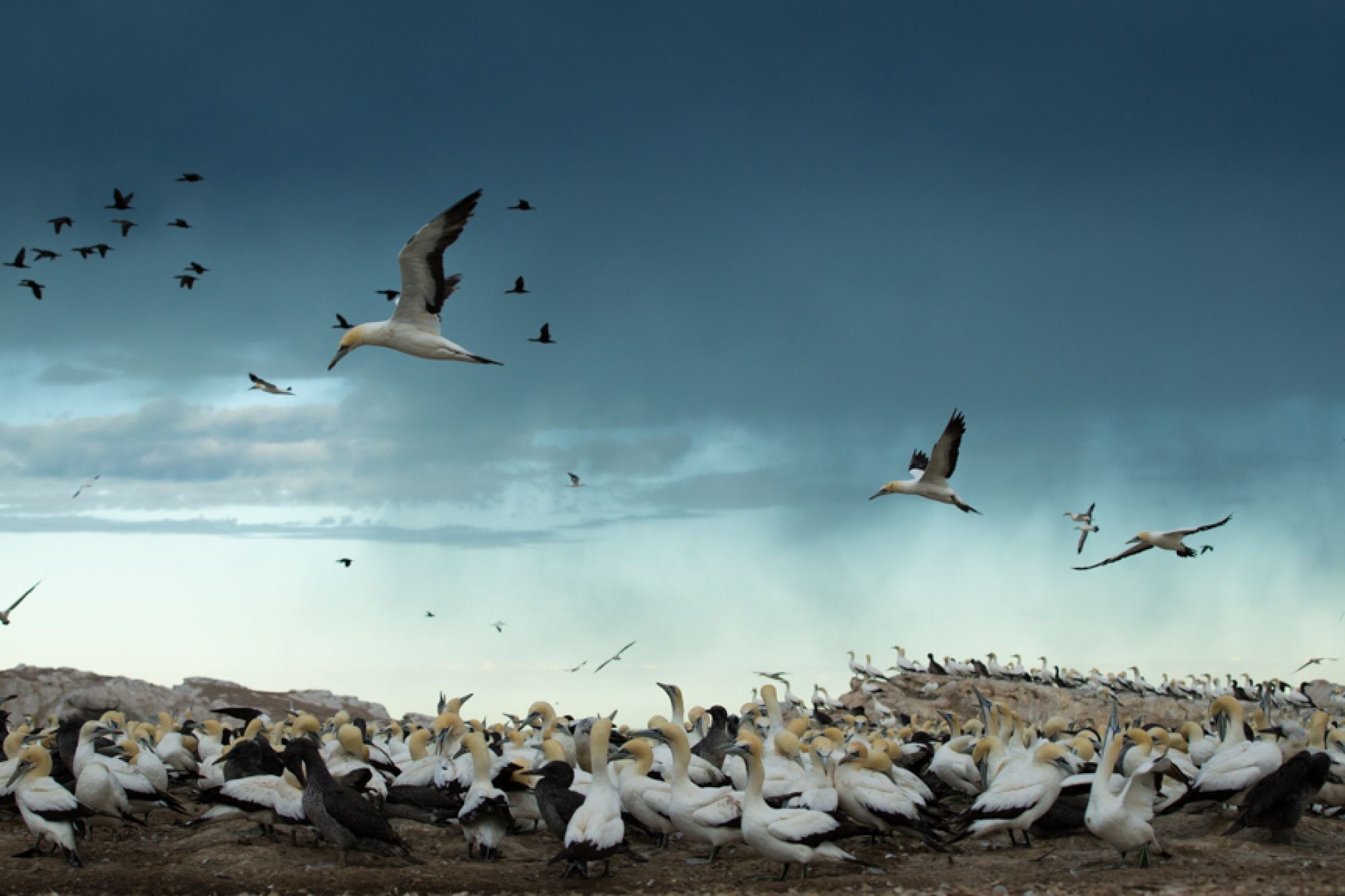
Although some birds disperse north along the east and west coast of Africa after breeding, they are a non-migratory bird species and some may even remain at the breeding locality throughout the non-breeding season. They mate for life and have elaborate mating rituals in which both males and females perform by stretching their necks up to the sky and tapping their bills together. They also have blue and black webbed feet which they use to cover their eggs during incubation.
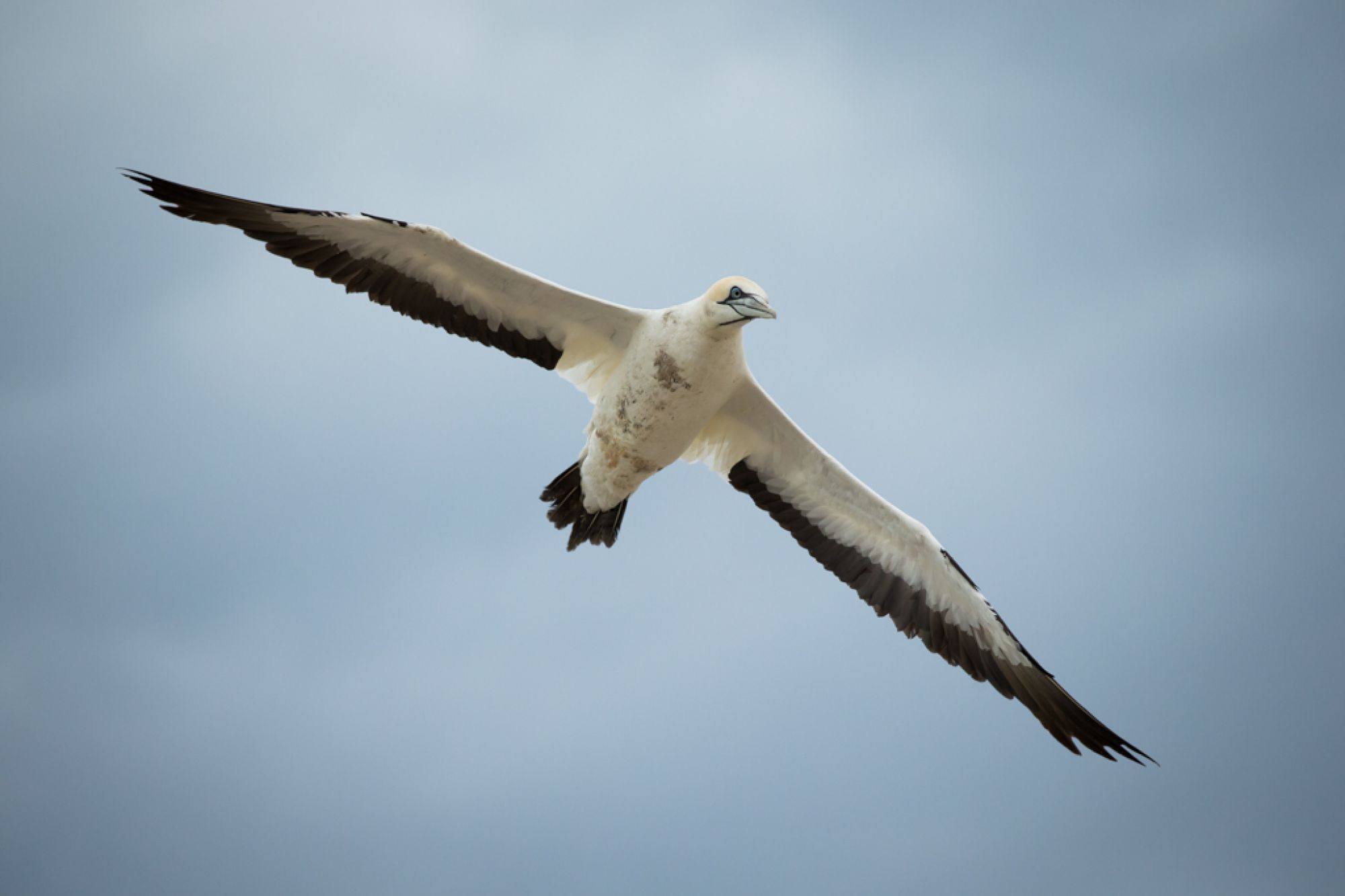
The Cape Gannet is globally endangered with a decreasing population. Pressures from human activities have caused Cape Gannet numbers to decline since their abundance was first estimated in 1956. At their breeding localities they produce guano which they use for nesting and like the African penguin previous guano harvesting for export as fertiliser has had a negative impact on the species.
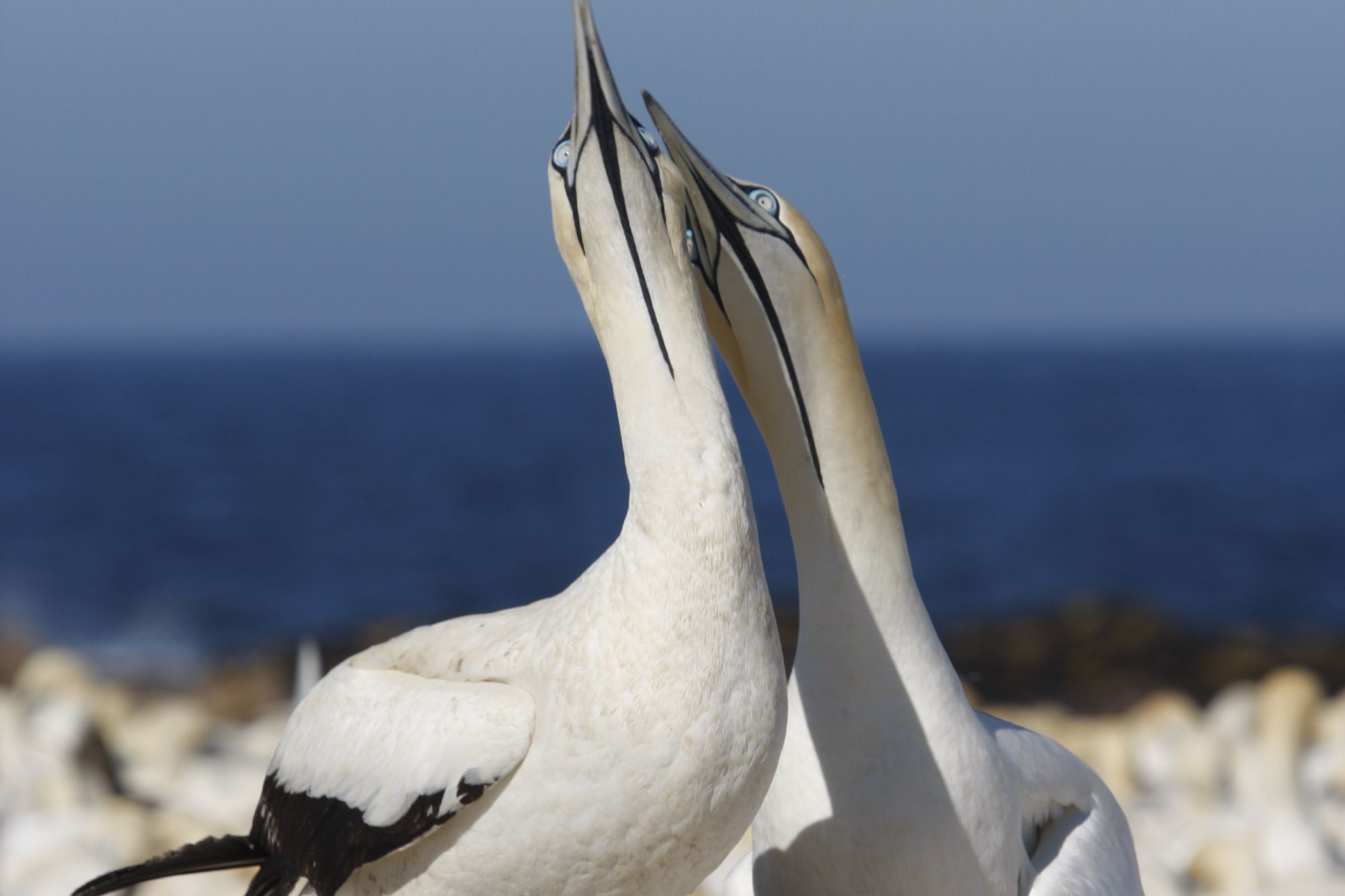
Recent studies suggest that there is a decreased availability of nutritious prey in the west including anchovies (Engraulis encrasicolus) and sardines (Sardinops sagax) which is a major threat to the species’ survival. This is due to over exploitation and has led to a collapse in fish stocks off the west coast of South Africa which has led to declines in its prey and a consequent drop in gannet numbers as they struggle to find enough fish to feast on.
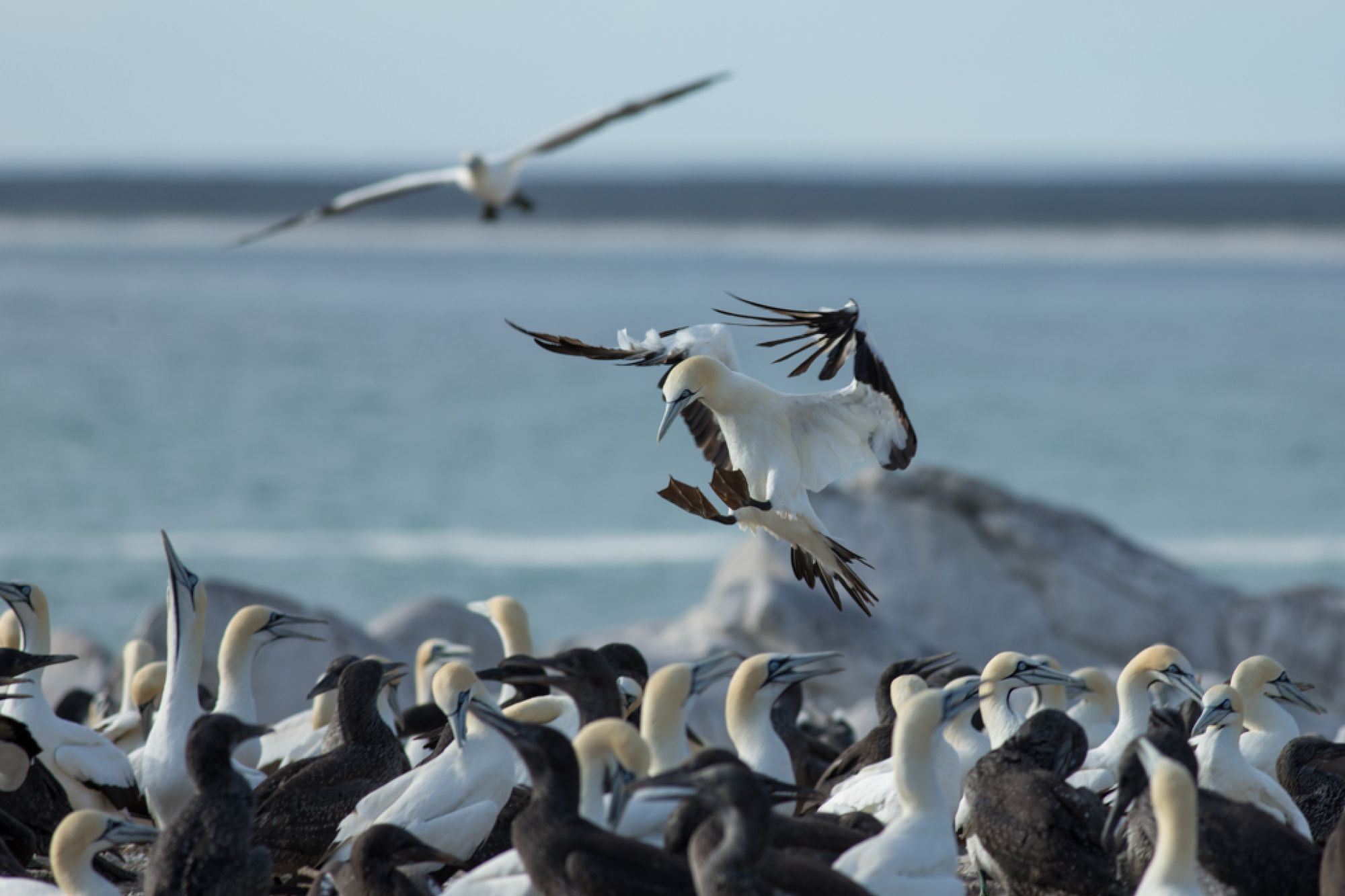
Furthermore, egg, chick and fledgling mortality in and around colonies due to predation by the Cape fur seal (Arctocephalus pusillus) and other marine birds threatens their survival. Cape Fur seals predate on the fledglings and other seabirds like the Cape gull (Larus Dominicanus Vetula) predate on their eggs. They are also affected by disturbance due to attacks by seals on adults. Some more threats include oiling, mortality in fisheries, extreme weather events and disease.
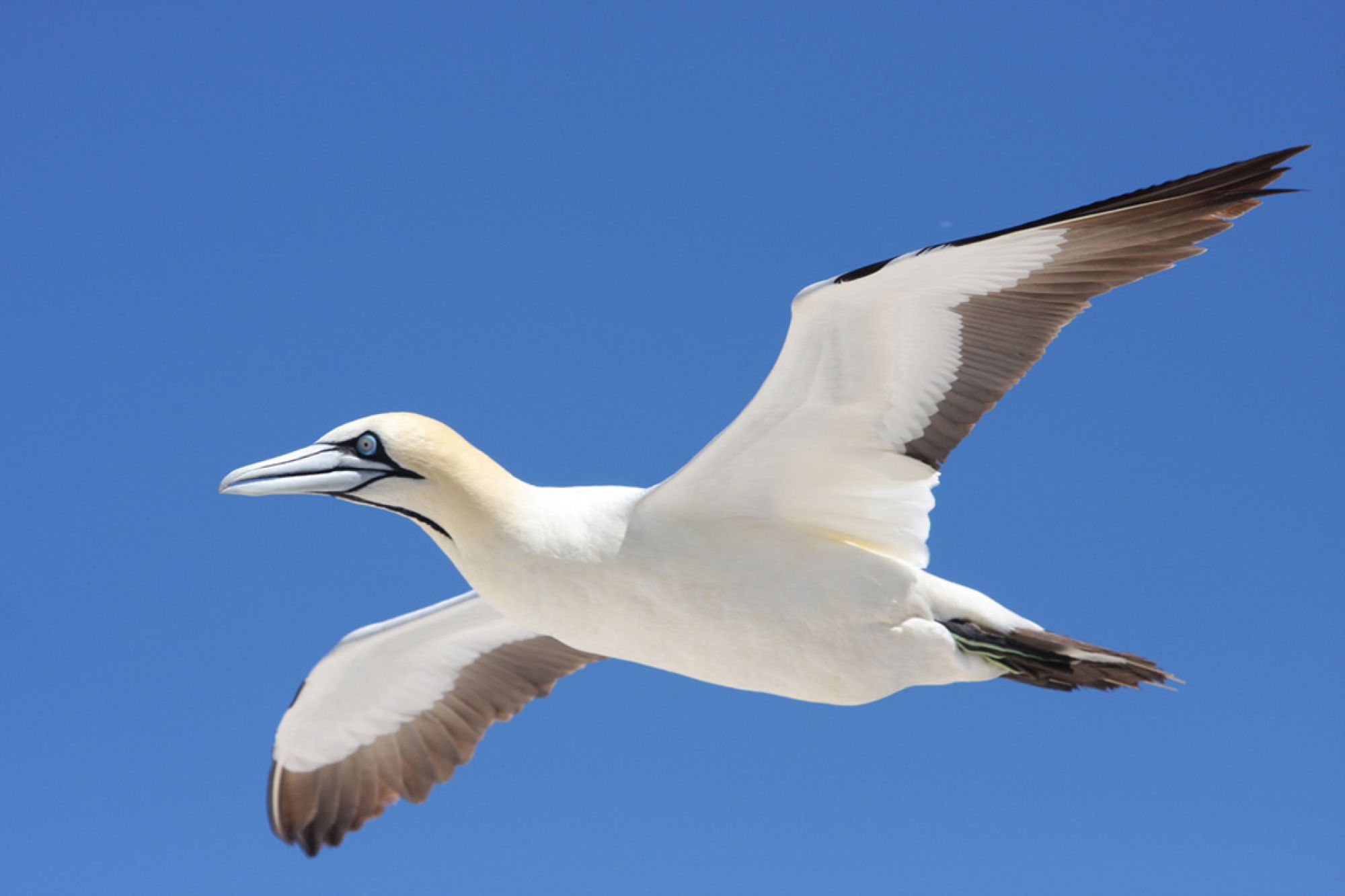
When they hunt, they search for large shoals of fish and plunge from the air onto their surface-dwelling fish prey. They have fine serrations at the tip of their bill to help them catch fish. When they dive they enter the water with such a force (around 40-120 km per hour) that they don’t have external nostrils where water can be forced into. Pollution has a negative impact on them due to poor quality of surrounding waters which negatively affects foraging. Today the rate of decrease of Cape Gannets in their most recent generation exceeds that of previous generation mainly because of the decrease observed at Bird island, Lambert’s Bay and Malgas Island.




